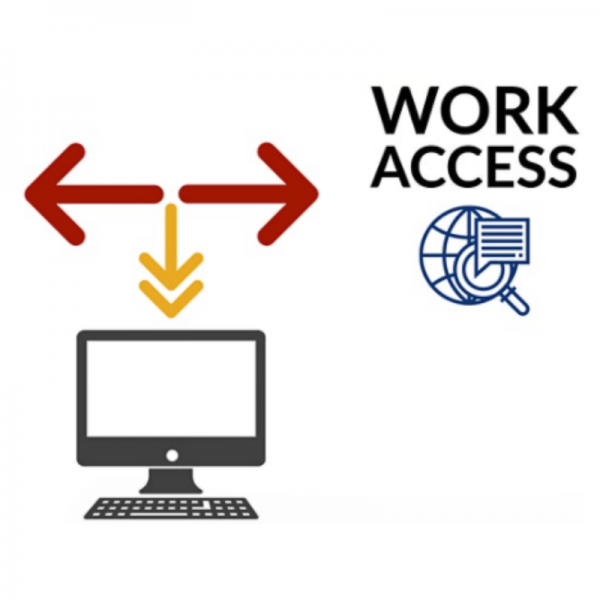
Work ACCESS
The Workplace Accommodation Expert Support System
Work ACCESS
The Workplace Accommodation Expert Support System
Work ACCESS is addressing this need by creating an easy-to-use workplace-accommodation assessment system that helps employers and employees make intelligent choices about the most appropriate accommodations, including universal features, assistive technologies, and strategies, while conducting an onsite evaluation.
The majority of workplace accommodations are determined by employers and/or the employees themselves. Unfortunately, these groups lack information about the full range of accommodation options that are available, and lack information about what options work best in which situations.
Work ACCESS
The project will:
1) develop, with the help of crowd sourcing, an expert system that collects information about personal, task, and environmental factors and determines potential solutions;
2) incorporate best practices for accommodating employees from published and new research, and from feedback from system users on accommodation effectiveness;
3) incorporate links to implementation resources;
4) program a web interface and mobile app;
5) optimize the system’s content and usability;
6) evaluate how people utilize the system in the field;
7) disseminate the system through employment, disability, and rehabilitation services provider networks.
Project staff will work closely with stakeholders, including our national and local disability employment, vocational rehabilitation and assistive technology partners, in the design and evaluation of the accommodation tool. Project outputs will include Work ACCESS and new findings on accommodation effectiveness. Work ACCESS will provide employers and employees with an easy-to-use tool that will empower them to make appropriate accommodation decisions. Significantly expanding employers’ workplace accommodation knowledge will increase their capacity to provide individualized solutions that improve employment outcomes for people with disabilities.
Participate in our Research
- Throughout the project we will be engaging people with experience recommending or using workplace accommodations to help us develop our decision trees.
- In the coming months, we will also be looking for people to participate in usability testing and field testing of the system.
- For more information: https://gatfl.gatech.edu/tflwiki/index.php?title=Expert_Interview_Recruitment
Papers & Presentations
Work ACESS Development
Milchus K., Phillips C., Bunn D., Endicott S., Harris F., Holder T., Linden M., Persaud L., Satterfield R., and Wilson R. (2020, September). Work Access: The Development Of Workplace Accommodation Decision Trees, in Proceedings of the RESNA 2020 Conference. Washington, D.C.
Milchus, K. & Phillips, C. (2019, June). New Crowd-Sourced Tools to Inform Workplace Accommodation Decisions, in Proceedings of the RESNA 2019 Conference. Toronto, Canada.
https://www.resna.org/sites/default/files/conference/2019/jea/Milchus.html
Questions?
Contact Us

